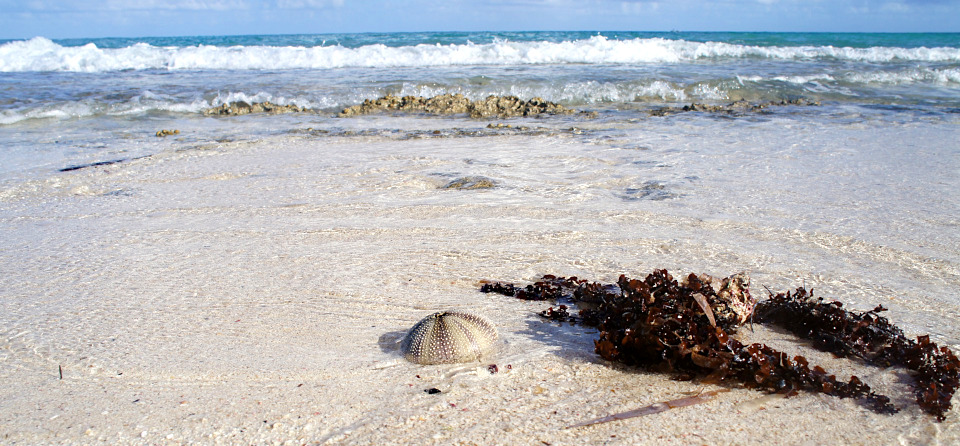
The world’s oceans could be our best ally in fighting climate change, so why are we poisoning them with plastic? Dr Andrea Bruce Clayton of the Caribbean Maritime university calls for new dialogue and wider recognition of the need to protect the oceans that are protecting us by absorbing carbon and sustaining the life of the planet.
COP26 is one of the last opportunities for the world to reduce the rate of climate change. The ocean is the great regulator of our climate, absorbing almost a quarter of the annual anthropogenic carbon dioxide in the atmosphere and approximately 90% of the excess heat caused by anthropogenic greenhouse gases, so it is vital to protect the ocean’s contribution to climate change mitigation. The ocean also provides us with food, energy, trade and livelihoods. It covers over 70% of the Earth’s surface. It is our greatest resource, and yet it is under threat.
Global warming impacts the marine ecosystem, beginning with the phytoplankton. These diverse single-celled algae form the basis of the ocean food web, sustain all major marine life forms and produce nearly half the daily oxygen in our atmosphere. When they die, some of them sink to the ocean floor, sequestering as much carbon as all terrestrial plants. If global warming and marine pollution harm the phytoplankton, the ocean will slowly lose its ability to absorb carbon dioxide. Marine ecosystems are already changing.
The ocean is also the recipient for much of humanity’s sewage and garbage, especially plastic waste, which is the world’s largest source of marine pollution and debris. Over 80% of all the plastic ever produced is now waste, and much of this ends up in the world’s oceans. This is a major threat to global food security, ocean biodiversity and economic livelihoods.

The ocean cannot remain an afterthought in the climate change conversation. COP26 must prioritize the health of the ocean and integrate ocean protection and preservation into climate solutions. There needs to be a new dialogue about integrated measures that can protect the ocean and the climate together, because the climate crisis is also an ocean crisis.

Ocean health and plastics ‘life cycle’ regulations should be synchronised and discussed comprehensively. Such an important analysis.